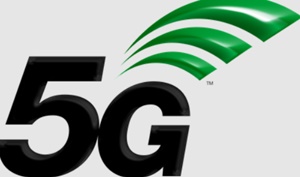The Tata group is looking to enter the telecom equipment, network and technology market, which is estimated to be worth over $100 billion globally, with new capacity created through organic and the acquisition route.

The Tata group has developed a state-of-the-art O-RAN-based Radio and NSA/SA Core and has integrated a totally indigenous telecom stack, leveraging group capabilities and that of its partners, to take advantage of the big new opportunity in 5G network and broadband rollout. This will be available for commercial development starting January 2022.
Tata group recently acquired Tejas, a reputed telecom gear manufacturer and has also announced a strategic partnership with Bharti Airtel, for the development, manufacture and implementation of 5G network solutions in India.
Tata Sons’ subsidiary Panatone Finvest acquired 43.3 per cent in Bengaluru-based telecom equipment manufacturer Tejas Network for Rs1,850 crore and announced it would buy another 26 per cent of the voting capital through an open offer.
The acquisition of a telecom equipment maker with R&D expertise (half of Tejas’ employees are in R&D) is part of the group’s overarching strategy to get into the game.
Tata Group company Tata Consultancy Services (TCS) will help align the end-to-end solution to both 3GPP and O-RAN standards, as the network and equipment are increasingly embedded into the software.
Airtel will pilot and deploy this indigenous solution as part of its 5G rollout plans in India and start the pilot in January 2022, as per the guidelines formulated by the Government of India.
These ‘Made in India’ 5G products and solutions are aligned to global standards and interoperate with other products based on standard open interfaces and those defined by the O-RAN Alliance. The 5G solutions, once commercially proven in Airtel’s diverse and brownfield network, will open export opportunities for India, which is now the second-largest telecom market in the world.
Reports citing Tata Group chairman N Chandrasekaran said that the company is looking to make a foray into semiconductor manufacturing in India.
Gopal Vittal, MD & CEO (India and South Asia) Bharti Airtel said, “We are delighted to join forces with the Tata group to make India a global hub for 5G and allied technologies. With its world-class technology ecosystem and talent pool, India is well-positioned to build cutting-edge solutions and applications for the world. This will also provide a massive boost to India becoming an innovation and manufacturing destination.”
“As a group, we are excited about the opportunity presented by 5G and adjacent possibilities. We are committed to building a world-class networking equipment and solutions business to address these opportunities in the networking space. We are pleased to have Airtel as our customer in this initiative,” N Ganapathy Subramaniam from the TCS said.
The 5G networks will be dominated by software that provides flexibility and ease in scaling up as well as more automation in operating networks, and will be less dependent on hardware.
O-RAN will be based on open standards not proprietary platforms — so that operators can source components separately, increasing competition and lowering price.
Analysts estimate that 70 per cent of the cost of the next generation 5G network would be for software and system integration and the rest is for hardware. Indian IT companies see an opportunity here.
While TCS has traditional strengths in this, it needs a hardware manufacturer who can manufacture radios, base stations controllers, the core of the network, and so on. Tejas fits the bill and there is the added advantage that the two have already been collaborating.
Airtel is a board member of the O-RAN Alliance and is committed to explore and implement O-RAN-based networks in India. Earlier this year, Airtel became the first telecom company in India to demonstrate 5G over its LIVE network in the city of Hyderabad. The company has started 5G trials in major cities using spectrum allocated by the Department of Telecom.
The Tata group's telecom and media enterprises cater to the communication requirements of global business houses to SMEs, and from wholesale to home networks. TCS is a member of the O-RAN Alliance.
Several other technology companies such as Reliance Jio, Sterlite Technologies, Tech Mahindra and HFCL, are eyeing the lucrative $100 billion-plus global market for 5G networks and broadband equipment.
All these domestic players will be locking horns with incumbent global telecom gear giants such as Ericsson, Nokia, Huawei, ZTE and Samsung.





















